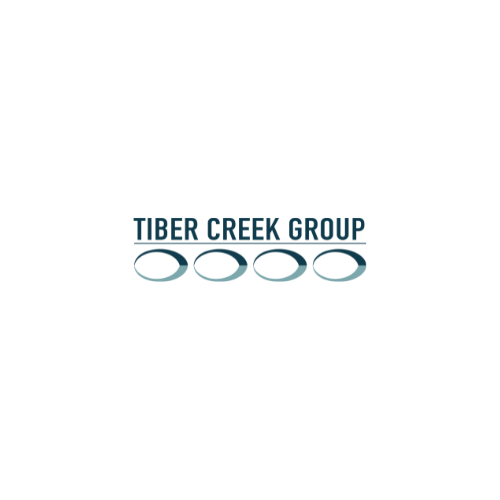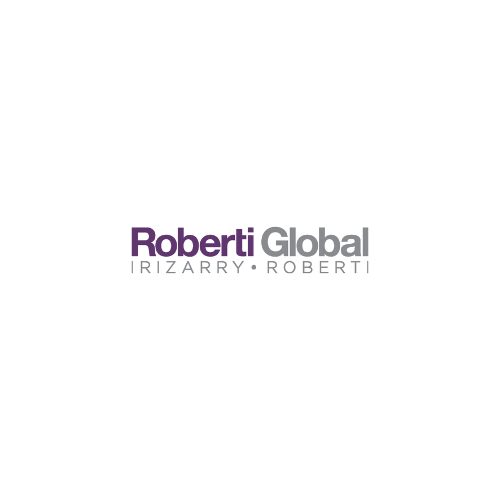-
DEFINITIVE RANKINGS
We work hard to come up with definitive, objective rankings. Learn more about our rankings:
-
SUPERLATIVE QUALITY
Only the top companies are ranked on our lists. Learn more about our standards:
-
OBJECTIVE METRICS
We use a set of advanced metrics to gauge each company. Learn more about our metrics:

Top Lobbying Firms in DC: Our Experts' Picks
Are you interested in being evaluated for next year's list?
Contact UsRankings
Our Mission
At Top Lobbying Firms, our mission is to provide the public with an accurate and independent ranking of lobbying firms in Washington, DC; we strive to make the complex world of government affairs and policy more accessible and transparent. We use a variety of criteria to identify and evaluate the leading lobbying firms in the nation's capital, including their expertise in specific areas of policy, their success rate in obtaining favorable results for their clients, the number of clients they serve, the size of their team, and the overall reputation of the firm. Our goal is to empower individuals and organizations to make informed decisions about their political representation by providing a comprehensive, up-to-date resource on the top lobbying firms in DC.
Should you hire Lobbying Firms?
Hiring a lobbying firm is certainly worth considering, especially for highly complex legal and political matters; the expertise of such professionals can prove invaluable in navigating the intricate pathways of government and influencing policy decisions. With an experienced lobbying firm, the potential to advance your agenda, gain access to key decision makers, and raise your profile with elected officials is greatly increased. In many cases, the cost of hiring a lobbying firm is more than offset by the value of the services they provide. Ultimately, the decision to hire a lobbying firm is one that should be carefully considered, but the potential benefits can be considerable. #LobbyingFirms #HiringLobbyingFirms #AdvantagesOfHiringLobbyingFirms
Lobbying Firms: What should you ask yourself?
At Top Lobbying Firms, we understand that navigating the complex world of lobbying services can be an intimidating endeavor; that's why we've provided a comprehensive selection of Frequently Asked Questions to ensure that our customers have access to the information they need to make informed decisions. We understand that each situation is unique, and that having a clear understanding of the lobbying process is critical for achieving the desired outcome. Our FAQs provide information about everything from the basics of lobbying to more specific topics like the differences between lobbying firms and lobbyists, so that our customers can make the right decision for their particular needs.
What experience and expertise does the firm have in the specific issue I need to lobby for?
It's helpful to look for a firm with a proven track record in the specific issue you need to lobby for. Look for a firm that has a deep understanding of the issue and a wide network of contacts in the relevant organizations. Additionally, you should check to see if the firm has any specialized expertise related to the issue, such as a dedicated lobbyist, or a team that has worked on similar projects in the past. Lastly, you should make sure that the firm is well-connected and respected in the industry, so that you know your lobbying efforts will be taken seriously. By taking the time to research and assess a firm's experience and expertise in the issue you need to lobby for, you can be sure you've chosen the right firm for your needs.
What is the firm's track record of success when lobbying on similar issues?
The firm's track record of success when lobbying on similar issues is an important factor to consider when selecting a lobbying firm. To evaluate a firm's track record, it is important to understand the firm's history and the types of projects it has undertaken. A firm's history can provide valuable insight into its track record; for example, a firm that has been in business for a long time may have a better track record of success than one that is relatively new. Additionally, it can be helpful to research the firm's past projects and successes; this can provide an indication of the firm's ability to successfully lobby on similar issues. Furthermore, the firm's reputation and client feedback are also important considerations; the more positive reviews and endorsements a firm has, the more likely it is to have a successful track record. Finally, the firm's breadth of experience and knowledge of the industry can also be an indicator of its success; a firm with experienced staff and a strong understanding of the industry is more likely to be successful when lobbying on similar issues.
What are the fees and payment expectations associated with hiring the firm?
The fees and payment expectations associated with hiring a lobbying firm vary widely and depend on a variety of factors such as the firm's size, specialization, and expertise. Generally, firms charge an hourly rate, a retainer fee, or a success-based fee, depending on the services they provide. Larger firms might charge an hourly rate ranging from $200 to $500 per hour, while smaller firms may charge as little as $100 per hour. Retainer fees are often based on the duration of the engagement and can range from $5,000 to $50,000 or more. Lastly, success-based fees are paid when the firm achieves the desired outcome and can range from 10-50% of the total contract value. It is important to note that payment terms vary from firm to firm, so it is best to speak with the firm directly to determine what fees and payment expectations are associated with their services.
Main Points to Remember
Choosing the right lobbying firm can be a difficult task. It requires careful consideration of a wide range of factors, including past successes, current capabilities, and overall reputation. While some firms have longstanding relationships with key decision-makers, others have a more nimble approach to getting the job done. Additionally, it's important to consider the cost of hiring a lobbying firm and the value it provides in terms of results. At Top Lobbying Firms, we strive to provide objective rankings of the leading lobbying firms in the industry, so that you can make an informed decision. We understand that the success of your business may depend on the strength of your lobby team, and we are dedicated to helping you make the right choice.
Frequently Asked Questions
Lobbying firms provide a range of services designed to influence public policy, legislation, and regulations. They specialize in helping their clients shape the political landscape in order to achieve their goals.
Lobbying firms typically offer research and analysis services, strategic advice, and government relations expertise. They can assist with crafting legislation, lobbying members of Congress, and engaging with executive branch agencies. They also provide media relations, public relations, and communications strategies to ensure their clients’ messages are delivered in the most effective way possible.
In addition to their core services, lobbying firms may offer additional services such as:
- Event planning
- Fundraising and campaigning support
- Project management
- Procurement assistance
- Legal advice and compliance services
- Advice on public policy issues
The combination of services offered by a lobbying firm can be tailored to meet the specific needs of their clients, making them an invaluable resource for those seeking to have an impact on public policy and legislation.
Lobbying firms play an integral role in influencing policy decisions by representing the interests of their clients to government officials. These firms employ experienced professionals who understand the intricacies of the legislative process and can communicate their clients' goals effectively.
Through various tactics such as:
- Grassroots lobbying
- Direct contact with policymakers
- Strategic media campaigns
Lobbying firms are able to influence the creation and passage of laws and regulations. Additionally, lobbying firms can provide expertise and advice on policy matters, helping their clients to make informed decisions and navigate complex issues.
By taking advantage of their extensive networks and deep knowledge of the legislative process, lobbying firms are able to shape policy decisions at the local, state, and federal levels.
The difference between a lobbyist and a lobbying firm is significant; while one is an individual that works to influence governmental decision-making, the other is an organization that provides strategic services to businesses seeking to navigate the complex and often-conflicting regulatory landscape.
A lobbyist typically works on behalf of a single organization, while a lobbying firm engages with multiple clients and provides comprehensive services to help them achieve their goals. Lobbyists are usually well-versed in the legislative process, able to interpret and analyze proposed legislation, and have the ability to connect with decision-makers. Lobbyists have access to those in power and are highly knowledgeable about the political landscape.
A lobbying firm, on the other hand, is a collective of experienced professionals, often from diverse backgrounds, who specialize in a variety of areas, such as:
- Public relations
- Policy research
- Strategic communication
A lobbying firm can provide a comprehensive suite of services, including research, analysis, strategy development, and public affairs campaigns.
Lobbyists and lobbying firms both serve an important role in our democracy, helping businesses to advocate for their interests, while ensuring that decision-makers are informed of the public's desires.
Lobbying firms are specialized organizations that engage in the practice of influencing public policy and decisions made by elected officials. These firms work to shape policy and legislation by providing information, advice, and expertise to policy makers.
Through direct contact with elected officials, such as legislators, governors, and members of Congress, lobbying firms can help shape outcomes in favor of their clients.
Lobbying firms often employ lobbyists to serve as the primary contact with elected officials. Lobbyists are responsible for developing relationships with elected officials and engaging in dialogue with them to advance their clients' interests. Lobbyists use their knowledge of the political process and the inner workings of government to help their clients achieve their goals. Lobbyists also use their connections to help their clients gain access to key decision-makers and to help them understand the political climate.
In addition to direct contact with elected officials, lobbying firms often use other tactics to influence public policy and legislation. These tactics include:
- Building relationships with influential political figures and industry experts
- Organizing grassroots campaigns and rallies
- Conducting research to inform their clients about relevant public policy issues
Lobbying firms play an important role in the political process. By engaging with elected officials and influencing public policy and legislation, they help their clients achieve their goals and make their voices heard.
Lobbying firms research and monitor proposed legislation in a variety of ways.
- Obtaining detailed information from legislative clerks
- Tracking the progress of proposed bills on their journey through the legislative process
- Analyzing the potential impact of proposed legislation on their clients' interests
They may also use a variety of tools, such as online databases and search engines, to stay up-to-date on the latest developments in the legislative process. In addition, they may use their network of contacts in the legislative, executive, and judicial branches to gain insight into the dynamics of the legislative process.
Finally, lobbyists may employ sophisticated analytics to assess the potential impact of proposed legislation on their clients' interests, as well as to identify potential strategies for influencing the legislative process.
By using a combination of these methods, lobbying firms can effectively research and monitor proposed legislation, providing their clients with the best possible advice and guidance.
Lobbying firms are a key part of the policymaking process, as they help bridge the gap between the public and private sectors. They work to advocate for their clients' interests in the legislative arena, and as such, they employ a variety of tactics to engage with the public.
At the core of any successful lobbying firm is an effective public relations strategy. They work to shape public opinion and create a positive image of their clients, and to do so, they use a range of tactics including:
- Public speaking engagements
- Media interviews
- Social media campaigns
- Grassroots strategies
Additionally, they often employ grassroots strategies to directly engage with their constituents, such as organizing community events or conducting targeted outreach initiatives.
Lobbying firms also use research and data to inform their strategies and make their case to the public. They utilize surveys, polls, and market research to better understand public opinion and develop messaging that resonates with their target audience.
Finally, lobbying firms often employ strategic partnerships and collaborations to expand their reach and influence. By forming relationships with organizations that share their client's values and interests, they can effectively reach a wider audience and create a more effective advocacy strategy.
By utilizing a variety of tactics and strategies, lobbying firms can effectively engage with the public and ensure their clients' interests are heard and represented in the policymaking process.
Lobbying firms ethically and legally work with government entities by providing their clients with up-to-date, comprehensive information about relevant legislative developments and policy changes. They offer their clients advice and guidance on how to best position their interests in the political arena. This may include:
- Research
- Analysis
- Strategizing on how to effectively communicate their message to key decision-makers in government
Additionally, lobbying firms have the expertise to help their clients navigate the complex regulations and procedures that govern lobbying activities, such as filing reports and disclosure requirements. Furthermore, lobbying firms may provide consulting services to help their clients develop effective strategies for influencing government policy, as well as media relations and public relations services to help their clients gain visibility and build relationships with key stakeholders.
Ultimately, lobbying firms help their clients cultivate powerful relationships with government entities in a manner that is both ethical and compliant with the law.
Lobbying firms build relationships with decision-makers by leveraging their expertise in the policymaking process and their network of contacts to effectively engage with those in power.
They use their extensive knowledge of the legislative landscape to craft tailored messages and campaigns that demonstrate their clients' value and create an opportunity for dialogue.
By cultivating relationships with decision-makers, lobbying firms are able to ensure that their clients' interests are represented and protected. They also ensure that their clients remain informed of changes in the political landscape, enabling them to anticipate potential challenges and capitalize on opportunities.
Through their strategic partnerships with decision-makers, lobbying firms are able to create an environment in which their clients can thrive, ultimately leading to success.
Lobbying firms are tasked with the difficult job of selecting which issues to focus their efforts on. They must analyze the political landscape of the jurisdiction they are operating in, and consider the current climate of opinion and potential impact of their efforts. They must also consider their own organizational goals and the needs of their clients, as well as the existing resources they have available to them. This process requires careful consideration of the potential outcomes and the resources needed to achieve success.
To properly select the right issues to focus on, lobbying firms must consider:
- The amount of support they will receive from the public.
- The potential for success in achieving the desired outcome.
- The amount of time and effort it will take to achieve their desired result.
- Ensuring that their efforts are in line with their organizational mission and values.
- Ensuring that their efforts are in the best interests of their clients.
- Staying up to date on the latest developments in their jurisdiction.
- Being prepared to make adjustments to their strategies as needed.
The process for hiring a lobbying firm typically involves a comprehensive analysis of your organization's needs and objectives. After an initial consultation, the firm will typically conduct an in-depth review of your industry, including a review of any existing policies, regulations, or laws related to your organization's particular goals.
Once the lobbying firm has a complete understanding of your organization's needs, they will develop a comprehensive strategy to help you achieve your objectives. This strategy will typically involve:
- Identifying key influencers and decision makers
- Developing a comprehensive plan of action
- Using their expertise and resources to effectively advocate on your behalf
The lobbying firm will then work to build relationships with these key influencers and decision makers, and work to ensure that your organization's objectives are met. In addition, the firm may also provide guidance on any potential legislative or regulatory changes, and work with your organization to ensure that these changes are effectively implemented.
A good lobbying firm should have:
- A thorough understanding of the political landscape, including the unique nuances of local, state, and federal government institutions.
- A deep understanding of the industries they represent and be well-versed in the legislative processes.
- A network of political contacts and resources, and the ability to effectively communicate their clients’ positions to the right people.
- An in-depth knowledge of the legal implications of the actions they are advocating for and the ability to craft well-thought-out strategies.
- An in-depth knowledge of the issues their clients are facing, as well as a solid track record of successful negotiations with legislators and other stakeholders.
- Knowledge in public relations, media relations, and grassroots campaigns.
Lobbying firms in Washington, DC, are uniquely positioned to provide comprehensive, specialized services to their clients. Unlike lobbying firms in other cities, those in DC have proximity and access to the individuals, organizations, and institutions that shape public policy and decision-making at the federal level. These firms are intimately familiar with the legislative process, the players involved, and the nuances of how to efficiently and effectively influence outcomes.
They have the expertise, resources, and connections to make a meaningful impact in the policy arena. In addition, many of these firms specialize in specific areas, such as:
- Healthcare
- Energy
- Technology
- Finance
Allowing them to provide targeted, tailored advice and support. Ultimately, DC-based lobbying firms provide an invaluable service to their clients, giving them a competitive edge in the ever-changing political landscape.










